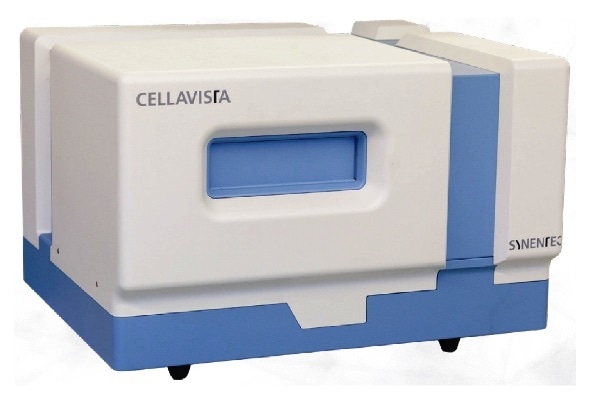Nov 1 2018
SYNENTEC GmbH, the German manufacturer of automated cell imagers, has launched its latest generation of CELLAVISTA® imagers: CELLAVISTA® 4. The new system has a significantly increased throughput, capable of scanning one 96 well microplate at 10X magnification in only 3 to 4 minutes. CELLAVISTA® 4 also has a number of other new features including:
- enhanced harmonic motion for microplate scanning without agitation,
- redesigned highly sensitive optics and HCS-grade lenses,
- 3 times more sensitive fluorescence module, enabling shorter exposures and less photobleaching, and
- faster autofocus performance.

Stefan Hummel, co-founder and CEO of SYNENTEC, says:
When researchers are looking to save time in their assay work, we need to make sure that our system doesn’t just have a fast throughput, but is also capable of high quality images and state-of-the-art image analysis.”
The new system is available in three models:
- CLD - with brightfield only,
- CLD High End - with 6 additional channels of fluorescence, and
- SCIENTIFIC – which features a 16 bit camera and high numeric aperture objective lenses.
SYNENTEC’s versatile CELLAVISTA® systems, together with their smaller footprint NYONE® series imagers, are used in industry settings for cell line development, bioprocessing, single cell cloning, and preclinical drug development. In academic research settings, they are used in cancer research, immunology, stem cell research, cell biology laboratories, etc.
Source: https://synentec.com/